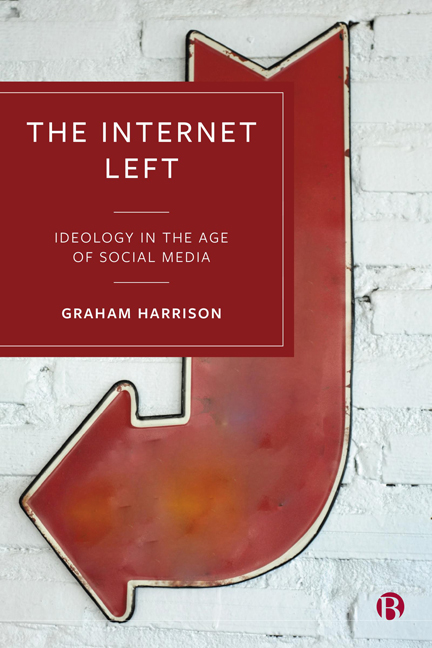Book contents
8 - Conclusion
Published online by Cambridge University Press: 03 April 2024
Summary
Summary
Succeeding a (supposed) period of stability, the political mood of our times is dour. Previously accepted expectations of stability, growth, improvement, good governance, and global integration have been undermined. Since at least 2008, we have lived in an age of crisis. Public and intellectual attention has been turned towards a set of declinist or eschatological political possibilities. Within the midst of this, discussions of social media have served as a key reference point for anxieties and pessimisms. The volatile, sporadic, unmediated, and emotional discourses of social media have ostensibly undermined public cultures of deliberation, tolerance, respect for evidence, and civic identity. Echo chambers, hate speech, and conspiracy abound. It is difficult to imagine a more inauspicious context within which to discuss the construction of socialist ideologies, at least within a formally democratic country. Indeed, even the descriptor ‘democratic’ seems increasingly aspirational rather than a working premise.
But, social media is not only a lurid and noisy fairground of dissonance and dissensus. There is, within its tweets, blogs, podcasts, discussion groups, and YouTube channels, a province that we dubbed PSM. PSM is defined through a twofold protocol. Firstly, an adherence to broadly deliberative rules of discussion: evidential backing, tolerance, a degree of measure. Secondly, the deployment of social media signifiers to move political discourse into a social realm where it might be noticed and even engaged with by a broader public: the use of imagery and logos, memes, hot takes, and more ‘sassy’ language.
It is a fact that PSM has emerged into a thriving virtual arena over the same period as politics more generally has been understood as a series of disasters. This, we argue, is a moderate corrective to the images of democratic breakdown, post-truth, political disorder, and a range of post-liberal positions that seem transfixed by reactionary populisms. Within the province of PSM, there exists a vibrant socialist intellectual activism.
Socialism has bequeathed to us a historiography of impatient optimism, based in the conviction that, although capitalism has pushed societies out of absolutist, feudalist, and stagnant states, it is constrained by its own contradictions and exploitations. Socialism emerged as the ideological tradition that wanted more out of political modernity. Of course, socialism has been much predicted and rarely, if ever, realised. Once one accepts this, its persistence seems remarkable.
- Type
- Chapter
- Information
- The Internet LeftIdeology in the Age of Social Media, pp. 136 - 145Publisher: Bristol University PressPrint publication year: 2023



